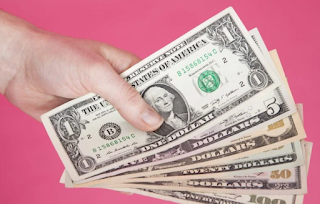 |
| Credit cards |
With Christmas approaching, it's time to check your credit card, whether you want to cut interest payments or earn rewards
The build-up to Christmas has begun and with it the spending on everything from presents to decorations to food. Many of us use credit cards at this time of year, either to spread the cost or so we can build up cash back or rewards from all our festive spending. But are we using the right cards?
Research from Sainsbury's Bank has found that 15 percent of us put large purchases on standard credit cards but don't clear the balance straight away. With standard credit cards charging an average of 18.9 percent APR those shoppers will pay an extra £268.36 repaying £2,000 over 18 months compared with if they had paid with a 0 percent credit card.
That isn't the only time people get it wrong with plastic. Many of us have a bog-standard credit card that we use regularly and repay the balance in full each month. That is great as you aren't paying any interest and you are building up a good credit history, but if you switched to a cashback or reward credit card you could benefit materially from your good credit habits.
Here are the best credit cards to use in the build-up to Christmas.
To spread the cost of Christmas
If you need to buy a few things and know you won't be able to pay off your card at the end of the month then go for a 0 percent purchase credit card. These cards allow you to spend money that you can then pay off over a long period without incurring any interest.
The best offer currently available is from Halifax. Its Purchase Credit Card offers 0 percent for 20 months. Just don't continue to use the card after that point unless you can pay the balance off in full: the interest rate jumps to 18.9 percent APR.
To earn rewards on festive spending
For those who pay off their credit card balance in full each month then interest rates aren't an issue. Instead, you should be looking at what you can earn from your spending.
If you'd like to earn air miles then you may want Lloyds Bank Premier Avios Rewards Credit Card. You'll earn up to 1.5 Avios points for every pound you spend and if you spend £12,000 a year you'll get a free companion ticket – meaning you can take someone with you on a trip at no extra cost (except their taxes and charges). According to TotallyMoney.com, this adds up to rewards worth £642 over three years, if you spend £1,600 a month on the card.
Just be aware that rewards points can be devalued at any time by the company issuing them and air miles can be tricky to spend as competition for rewards seats on flights can be fierce.
Bank some cashback
A better option is to go for a cashback credit card where you earn cold hard cash that can't be devalued, and which you can spend on anything you like.
The best of the bunch at the moment is the American Express Platinum Cashback card. It pays 5 percent for the first three months – perfect for Christmas – then the rate falls to 1.25 percent. The card has an annual fee of £25, but if you spend £1,000 a month on the card you'll easily earn that back – TotallyMoney.com estimates you'd earn £493 over three years.
Avoid charity credit cards
At this time of year, many of us like to help out charities while buying things for ourselves. There are numerous great ways to do this but a charitable credit card isn't one of them. The amount of money the charity receives is usually pitiful. Typically just 0.25 percent of your spending goes to charity – that is 25p per £100 you spend.
If you want a charity to benefit from your credit card spending take out a cashback card instead and donate what you earn. ·
Read more: http://www.theweek.co.uk/prosper/personal-finance/61453/are-you-using-the-right-credit-card#ixzz3JlCCSX79













